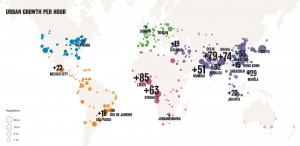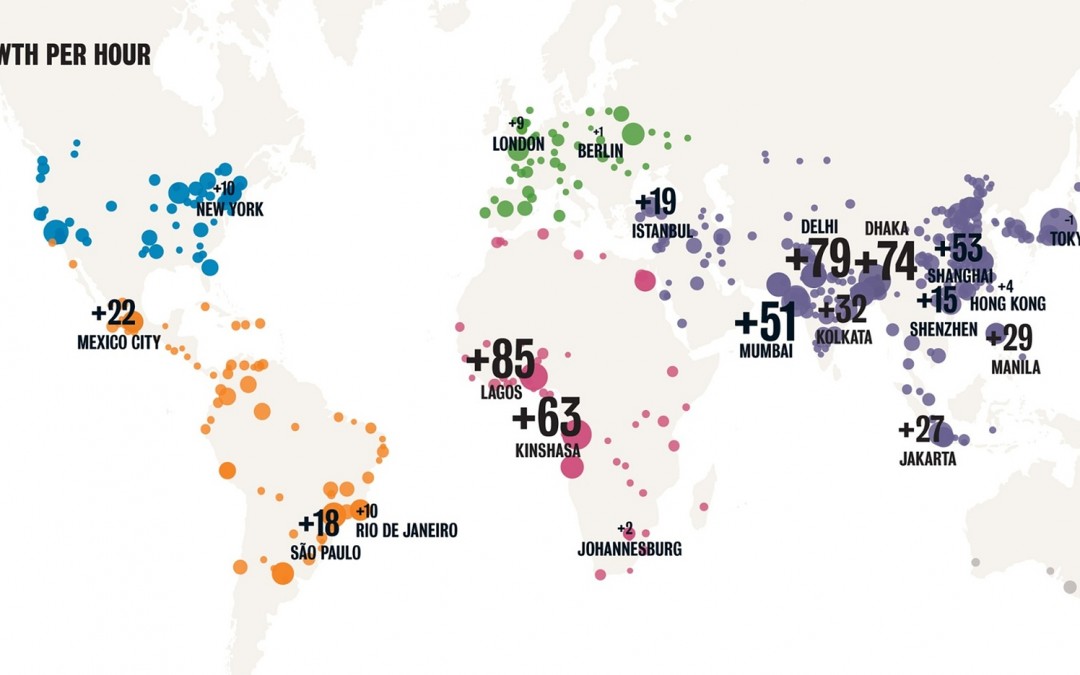Climate Solutions from C40 Cities and Arup Consulting
The cities of the world are facing twin challenges of climate change and rapidly growing populations. Half the world’s population is already living in urban centers and that proportion is expected to rise to 70% by 2050.

Estimated urban growth per hour through a combination of natural internal growth and migration in selected world cities. Source: UN World Urbanisation Prospects 2014/LSE Cities
In 1950, the fishing village of Shenzhen in south-east China had 3,148 inhabitants. By 2025, the UN predicts, that number will exceed 12 million. Compared to other global cities, London is inching forward, with only nine new residents an hour, compared to double that number in São Paulo and over 70 in Delhi, Lagos and Dhaka. Nonetheless, London will accommodate one million more people by 2030.
C40 Cities, the GSN focused on the issues of climate change in the urban context, has developed a report in partnership with Arup Consulting that coincides with the COP21 meetings. The report identifies 27,000 specific activities, programs, procurements, and policies that cities could implement over the coming years. This shows the vast potential in our cities. Of these, C40 has identified 2,300 high-impact, readily deliverable actions that could save a massive 450 MtCO2 by 2020, equivalent to the annual emissions of the United Kingdom, and could be unlocked with just $6.8bn.
The findings of the report, Potential for Climate Action, are striking because they represent the actions that mayors and civic leaders can and will deliver regardless of the results of intergovernmental efforts to agree to a treaty on carbon emissions, and before any COP21 agreement kicks in, in 2020.
Speaking to the Guardian, Gregory Hodkinson, chairman of the Arup group, and former trustee of WaterAid who also works with the World Economic Forum on developing sustainable and resilient cities, said,
The big challenge – apart from the obvious humanitarian one of trying to build these [cities] fast enough to provide the real basics of shelter and essential utilities – is doing all those things and doing them in a low-carbon way. If we don’t, in my view, we’re screwed: my children and my grandchildren and everybody else’s children. We need to find a way to do this rapid urbanisation in a way that’s not going to kill us – and to do it once.


